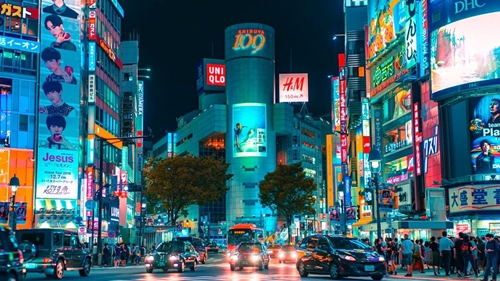
Japan has plans to build twenty coal power plants in the next five years. These plants will emit the same amount of carbon as all of the cars people drive in the United States. There are a few reasons why it’s been decided that things will turn out this way but a lot of it seems avoidable if the country really was taking the reduction of CO2 seriously.
Nuclear energy has a lot of opponents in Japan and many of them have a strong passion for why nuclear energy should not be used. Ignoring that most of these people are not nuclear scientists and that the common knowledge and experience with nuclear reactors are related to old generations of reactors, mostly due to the protesters themselves preventing new reactors from being built, there are still alternatives. People tend to focus on the recent tragedy of the Fukushima Daiichi Nuclear Power Plant, which was a generation 2 boiling water reactor, and just want to do away with the technology altogether. Suffice to say that any new nuclear power plant built in the next 20 years would be a completely different and much safer design. People will still come up with extreme examples of what could occur in any scenario so let’s move on.
The building of coal power plants is primarily a problem due to the CO2 that would be released into the atmosphere. I do not believe that humans can maintain absolute control over the changing temperatures of the planet on a long-term scale anytime soon, but we can certainly eliminate and control as many factors as we can and our own CO2 emissions definitely fall into the category of something we can actually do. Why is Japan building more coal power plants, though?
On the one hand, the Japanese government says that the best reason for using coal is because it is cost-effective and that new coal power plants need to be made to replace the less efficient power stations that already exist. The claim is that because they will be more efficient overall emissions will decrease. In addition to that, alternative energy such as solar and wind has been deemed to be too unreliable and pricey. It is worth noting that these are probably not the only reasons.
Japan, through organizations like Japan International Cooperation Agency (JICA) are selling coal power plant technology to countries around the world. Coal companies through JICA are giving out loans of over a billion dollars each to countries such as Bangladesh and Vietnam in order to create coal power plants. According to the International Energy Agency, coal power plants are the largest reason why there has been growth in CO2 emissions in 2018. Japan maintains that coal is simply required as nuclear power plants shouldn’t be used so much due to their danger. It seems, however, that the real reason might be more closely related, as it often is, to making money.
What about the critiques of renewable energy being too unreliable and pricey, though? Considering the scales of time required for things such as establishing power plants, both arguments are quite silly. With regards to reliability, the country literally has enough geothermal energy to have funded a successful hot spring industry for hundreds of years if not more. If we were to treat rising CO2 emissions as the worldwide emergency that they certainly seem to be, then sacrifices need to be made by all first world countries. With regards to cost, that will invariably come down over time. A big part of the reason why it’s expensive is because the prices of land are expensive to take over and work with. This is probably not because the land is too hard to work with from a labor perspective, but more likely because of bureaucracy, inconvenience, unsightliness, and the desire to not have competition in the energy space.
Ivan
Vocabulary
emit (verb) – to send out something such as light, heat, sound, gas, etc.
suffice (it) to say (idiom) – used to show that, while you could give more information on the topic, the statement you gave is enough to make your meaning clear
cost-effective (adjective) – giving the best possible profit or benefits in comparison with the money that is spent
deem (verb) – to have a particular opinion about somebody or something
bureaucracy (noun) - the system of official rules and ways of doing things that a government or an organization has, especially when these seem to be too complicated
unsightliness (noun) - the quality or condition of being ugly
ネイティブ講師と話すならこちら!
英語学習をフルサポート!
マンツーマン&コーチングの英会話教室



















